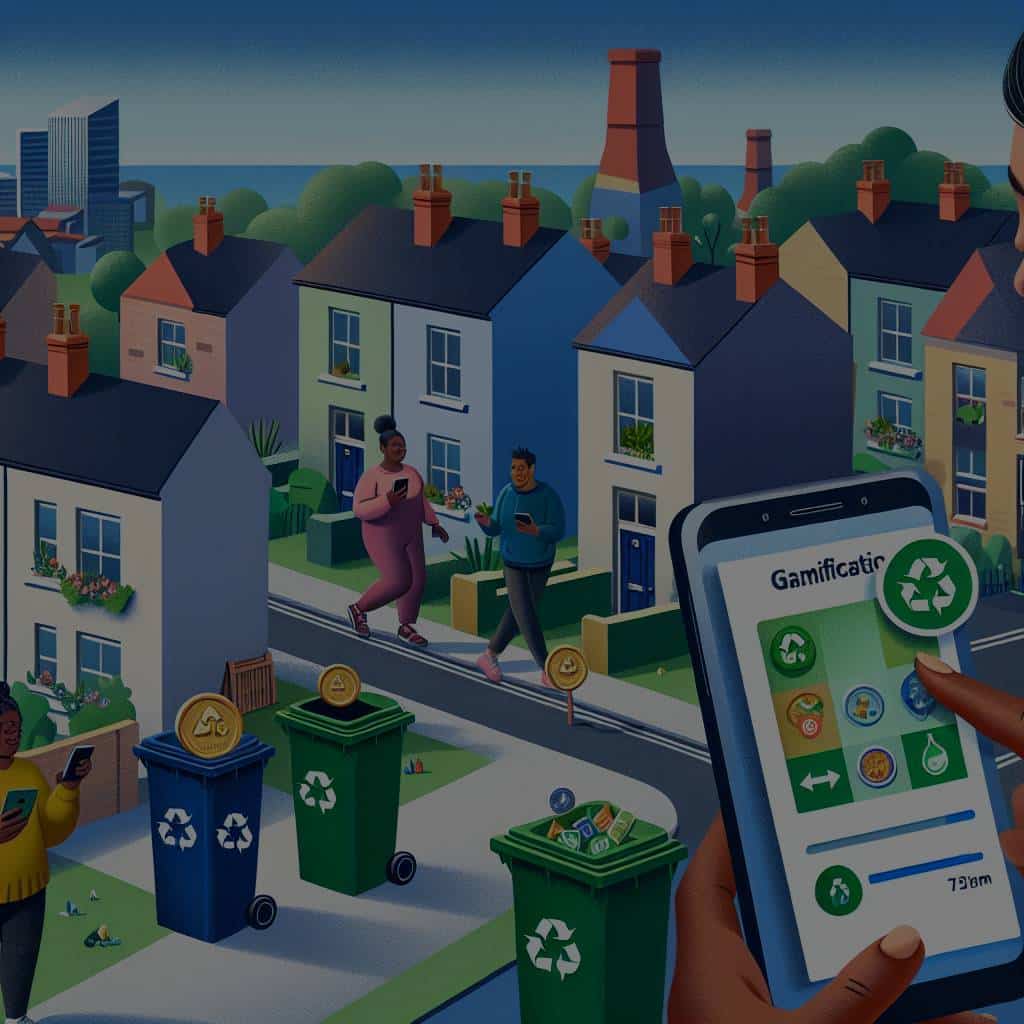How can gamification in apps encourage sustainable habits among UK residents?

Understanding Gamification in Apps
Gamification is an innovative application design technique that leverages game mechanics to engage users. This principle is applied extensively in various sectors, from health management to social networking, promoting user participation, and fostering positive behavior. Gamification elements such as challenges, rewards, and leaderboards encourage active engagement, making mundane tasks intriguing and enjoyable.
Google Scholar and Crossref are rich sources of empirical studies that detail how gamification can promote environmentally sustainable habits. As you delve into these scholarly resources, you’ll come across fascinating studies that unpack the transformative capacity of gamified apps in shaping user behavior.
Topic to read : Dive into the excitement of mystery boxes online today
The Impact of Gamification on Environmental Behavior
A critical area where gamification has demonstrated immense potential is environmental conservation. The use of game elements in apps can encourage users to adopt eco-friendly practices, contributing to the broader goal of sustainability. A pro-environmental behavior can significantly impact the larger society, leading to more sustainable communities.
One such study published on Google Scholar explains how a gamified recycling app increased waste sorting behavior among its users. This app utilized game design elements like points, badges, and leaderboards to motivate users to recycle more. The social group feature allowed users to compete with friends and family, providing a communal sense of achievement.
Also read : How to effectively manage screen time for children in the UK’s digital age?
Gamification in Sustainable Transportation Apps
Transportation apps are another area where gamification can encourage sustainable habits. Several studies have explored how game elements can influence users to choose more sustainable modes of transport.
A study featured in Google Scholar investigated a game-based app that rewards users for using public transport, cycling, or walking instead of private vehicles. The game design elements successfully motivated users to reduce their carbon footprint over time, contributing to the overall health of the environment.
The role of social functionality in these apps also deserves a special mention. The ability to share progress, compare achievements, and compete with others significantly reinforced the users’ motivation to adopt pro-environmental transportation habits.
The Role of Gamification in Promoting Sustainable Dietary Choices
A sustainable diet lies at the heart of environmental protection. However, convincing users to make healthier dietary choices can be a daunting task. That’s where the use of game design elements comes in.
A research study on Crossref shed light on a digital health game aimed at promoting sustainable and healthy eating habits. Through a system of points and rewards, the app motivated users to choose foods with a lower environmental impact. Social features allowed users to share their achievements and learn from others, fostering a community of users committed to sustainable eating.
Gamification in Energy Consumption Management
Energy consumption is a significant environmental concern. Adopting energy-efficient habits can make a considerable difference. Gamified apps can play a crucial role in driving this change.
One compelling study from the Google Scholar archives outlines the effectiveness of a gamified energy app. The app, equipped with real-time feedback, goals, and rewards, motivated users to reduce their electricity consumption. The study highlighted how a combination of game elements and user-friendly design led to a significant reduction in energy usage among the app users.
Through gamification, sustainable habits are not just encouraged but rewarded, creating a positive reinforcement loop. These studies prove that with the right design and application, gamification can be a powerful tool in promoting environmental sustainability. While it’s just one piece of the larger puzzle, it’s certainly a step in the right direction.
Gamification in Water Conservation Apps
In the face of increasing water scarcity, encouraging water conservation habits is a crucial task. Gamified apps can play a significant role in fostering such habits.
A research article on Google Scholar detailed an app that used gamification to promote water-saving practices. The app made water conservation fun and competitive with features like challenges, rewards and leaderboards. It allowed users to track their water usage and rewarded them for achieving their water-saving goals.
The social features of the app added another layer of motivation. Users could compare their progress with others and even engage in friendly competitions. This communal aspect made water-saving a group effort rather than a solitary endeavour.
The study, in the long term, noted a significant decrease in water usage among the users of the gamified app. This is a clear testament to the effectiveness of game design elements in influencing environmental behaviour.
Gamification in Waste Reduction Apps
Waste reduction is another important component of environmental sustainability. Gamified apps can encourage users to reduce, reuse, and recycle efficiently.
A study found on Crossref Google highlighted a waste reduction app that used game mechanics to motivate users. The app offered rewards for waste reduction actions like composting, reusing, and recycling. It also provided users with a wealth of information about waste management.
The research study emphasized that the app’s compelling game elements and rich content made it highly effective. The app users reported a notable shift in their habits, with a greater focus on waste reduction and recycling. These results demonstrate the potential of gamified apps in promoting pro-environmental habits.
Conclusion
In conclusion, the application of gamification in apps is a promising approach to encouraging sustainable habits among UK residents. As detailed in several studies from Google Scholar, Crossref Google, and Pubmed Crossref, gamified apps have proven effective in promoting environmental behaviours in various sectors, such as water conservation, waste reduction, energy management, transportation, and dietary choices.
Whether it’s making healthier food choices, adopting energy-efficient practices, reducing water usage, or managing waste better, gamified apps make these tasks engaging and rewarding. The social functionality of these apps fosters a sense of community, making sustainability a collective effort rather than a solitary pursuit.
While gamification is not the ultimate solution to environmental issues, it is undeniably a step in the right direction. It represents a fusion of technology and environmental consciousness, harnessing the power of playing games to create real-world impact. As more of these apps come into play, we can look forward to a future where sustainable habits are not just a necessity, but a lifestyle choice that is enjoyable and rewarding.
